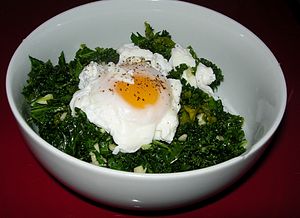Dieting/ja: Difference between revisions
Created page with "==== 栄養補助食品 ==== 極端な食生活や偏った食生活のために、不足したビタミンやミネラルを補おうとして栄養補助食品を摂取することがある。サプリメントの中には、偏った食生活をしている人に役立つものもあるが(必須栄養素を補う場合など)、サプリメントの過剰摂取は、摂取するサプリメントや量によってさまざまな副作用を引き起こす可能..." |
Created page with "===水=== {{Main/ja|Weight loss effects of water/ja}} 2009年のレビューでは、水の摂取を促し、エネルギーを含まない飲料をエネルギーを含む飲料に代える(つまり摂取カロリーを減らす)ことで、体重管理が容易になる可能性を示唆する限定的な証拠が見つかった。2009年の論文では、食事の前に500 mlの水を12週間飲むことで、長期的な体重減少が認められた。(参考..." Tags: Mobile edit Mobile web edit |
||
| (5 intermediate revisions by the same user not shown) | |||
| Line 100: | Line 100: | ||
極端な食生活や偏った食生活のために、不足したビタミンやミネラルを補おうとして栄養補助食品を摂取することがある。サプリメントの中には、偏った食生活をしている人に役立つものもあるが(必須栄養素を補う場合など)、サプリメントの過剰摂取は、摂取するサプリメントや量によってさまざまな副作用を引き起こす可能性がある。サプリメントは、健康的な食生活にとって重要な食品の代わりにはならない。 | 極端な食生活や偏った食生活のために、不足したビタミンやミネラルを補おうとして栄養補助食品を摂取することがある。サプリメントの中には、偏った食生活をしている人に役立つものもあるが(必須栄養素を補う場合など)、サプリメントの過剰摂取は、摂取するサプリメントや量によってさまざまな副作用を引き起こす可能性がある。サプリメントは、健康的な食生活にとって重要な食品の代わりにはならない。 | ||
====摂食障害==== | |||
=== | George Hsuは''[[:en:Psychological Medicine|心理医学]]''の論説で、特定の危険因子が存在する場合、ダイエットは[[eating disorder/ja|摂食障害]]の発症につながる可能性が高いと結論づけている。2006年の研究では、ダイエットや不健康な体重コントロール行動は、5年後の肥満や摂食障害の予測因子であることが判明しており、著者らは「ダイエットや思い切った体重コントロール手段から、健康的な食事や身体活動を長期的に実施する方向へのシフト」を推奨している。 | ||
==メカニズム== | |||
{{Anchor|Mechanism}} | |||
身体が消費するエネルギーよりも消費するエネルギーの方が多い場合(運動時など)、身体の細胞は複合炭水化物や脂肪などの内部に貯蔵されたエネルギー源に頼ってエネルギーを得る。身体が最初に頼るエネルギー源は[[glycogen/ja|グリコーゲン]]である([[glycogenolysis/ja|グリコーゲン分解]]によって)。グリコーゲンは複合糖質であり、その65%は骨格筋に、残りは肝臓に貯蔵されている(全身で合計約2,000[[:en:kcal|kcal]])。摂取した[[nutrients/ja|マクロ栄養素]]、主に炭水化物の過剰分から作られる。グリコーゲンが枯渇しそうになると、身体は[[lipolysis/ja|脂肪分解]]を開始し、脂肪貯蔵をエネルギーとして動員し異化する。この過程で脂肪組織、すなわち[[fat cells/ja|脂肪細胞]]から得られる脂肪は、エネルギーを生成するために使用できる[[glycerol/ja|グリセロール]]と[[fatty acids/ja|脂肪酸]]に分解される。代謝の主な副産物は二酸化炭素と水であり、二酸化炭素は呼吸器系を通じて排出される。 | |||
=== セットポイント理論 === | |||
{{see also/ja|Energy homeostasis/ja#Imbalance}} | |||
{{see also|Energy homeostasis#Imbalance}} | 1953年に初めて発表されたセットポイント理論は、それぞれの身体にはあらかじめプログラムされた一定の体重があり、それを補うための調節機構が備わっていると仮定した。この理論はすぐに採用され、効果的かつ持続的な減量法の開発における失敗を説明するために使用された。日替わり絶食や時間制限摂食だけでなく、運動や過食も含む複数の体重変化手順に関する2019年の系統的レビューでは、これらすべての手順について系統的な「エネルギー的エラー」が発見された。これは、身体がエネルギー/カロリー摂取の誤差を正確に補正できないことを示しており、セットポイント理論に対抗し、[[weight loss/ja|体重減少]]と[[obesity/ja|肥満]]のような体重増加の両方を説明できる可能性がある。このレビューは短期的な研究に対して行われたものであるため、このようなメカニズムは長期的には除外できない。 | ||
==方法== | |||
{{Anchor|Methods}} | |||
=== | ===食事のタイミング=== | ||
食事のタイミングは、どのようなダイエットにおいても重要な要素であることが知られている。最近のエビデンスによると、[[intermittent fasting/ja|断食]]や食事抜き、食前に戦略的に間食をとるなどの新しいスケジュール戦略は、より広範なライフスタイルや[[healthy diet/ja|食生活の変化]]の一環として、心血管リスクを減らすために推奨できる可能性がある。 | |||
===食事日記=== | |||
=== | 2008年に[[:en:American Journal of Preventive Medicine|American Journal of Preventive Medicine]]で発表された研究によると、毎日食事[[:en:Personal journal|日記]](またはダイエット日記)をつけているダイエッターは、食事記録をつけていない人に比べて体重が2倍減少した。 | ||
===水=== | |||
{{Main/ja|Weight loss effects of water/ja}} | |||
{{Main | Weight loss effects of water}} | 2009年のレビューでは、水の摂取を促し、エネルギーを含まない飲料をエネルギーを含む飲料に代える(つまり摂取カロリーを減らす)ことで、体重管理が容易になる可能性を示唆する限定的な証拠が見つかった。2009年の論文では、食事の前に500 mlの水を12週間飲むことで、長期的な体重減少が認められた。(参考文献は[[Weight loss effects of water/ja|主要記事]]に記載されている)。 | ||
==社会== | ==社会== | ||
Latest revision as of 09:40, 9 March 2024
| aシリーズの一部である。 |
| 体重 |
|---|
ダイエットとは、体重の減少、維持、増加、あるいは糖尿病や肥満などの病気の予防や治療のために、食事を規則正しく行うことである。減量はカロリー摂取量に依存するため、特定の大栄養素を強調したもの(低脂肪、低炭水化物など)などのカロリー低減ダイエットのさまざまな種類は、互いにそれ以上の効果がないことが示されている。
最初に流行したダイエット法は「バンティング」で、ウィリアム・バンティングにちなんで名付けられた。1863年の小冊子『大衆に宛てた肥満に関する手紙』の中で、彼は特定の低炭水化物、低カロリー食の詳細を概説し、彼自身の劇的な体重減少につながった。
いくつかのガイドラインでは、体重に関連した健康問題を抱える人には減量のためのダイエットを勧めているが、そうでない健康な人には勧めていない。 ある調査によると、アメリカの成人のほぼ半数がダイエットによる減量を試みており、その中には肥満の成人の66.7%、標準体重または低体重の成人の26.5%が含まれている。肥満でない)過体重、標準体重、または低体重のダイエッターは、ダイエットの結果として死亡率が増加する可能性がある。
歴史

ダイエットという言葉はギリシャ語の「δίαιτα (diaita)」に由来しており、狭い意味での減量法ではなく、精神的・肉体的な健康も含めた全体的な健康的なライフスタイルという概念を表している。
最初の栄養学者の一人は、イギリスの医師ジョージ・チェインだった。彼自身はとてつもなく太りすぎで、常に大量の豊かな食べ物や飲み物を口にしていた。彼は肉を食べない食事療法を始め、牛乳と野菜だけを摂取し、すぐに健康を取り戻した。彼は、肥満のすべての人に自分の食事法を公に勧め始めた。1724年、彼はAn Essay of Health and Long Lifeを書き、その中で運動と新鮮な空気、贅沢な食べ物を避けることを勧めている。
スコットランドの軍医John Rolloは1797年にNotes of a Diabetic Caseを出版した。このノートでは糖尿病の患者に対する肉食の利点が述べられており、この推奨はマシュー・ドブソンによる糖尿病における糖尿の発見に基づくものであった。ドブソンの検査方法(尿中のグルコースの検査)によって、Rolloは現在2型糖尿病と呼ばれているものに成功する食事療法を考案した。
最初に流行したダイエット法は「バンティング」で、イギリスの葬儀屋ウィリアム・バンティングにちなんで名付けられた。1863年、彼はLetter on Corpulence, Addressed to the Publicという小冊子を書いた。彼自身の食事は1日4食で、肉、青菜、果物、辛口のワインから成っていた。砂糖、甘いもの、でんぷん、ビール、牛乳、バターを避けることに重点を置いていた。バンティングのパンフレットはその後何年も人気を博し、現代の食生活のモデルとして使われることになる。このパンフレットの人気は、"Do you bant?"という質問が彼の方法を指すようになり、やがてダイエット全般を指すようになった。彼の小冊子は2007年現在も印刷されている。
カロリー計算を推進した最初の減量本であり、ベストセラーになった最初の減量本は、アメリカの医師でコラムニストのルル・ハント・ピーターズによる1918年のダイエットと健康:カロリーの鍵であった。
2014年までに1000以上のダイエット法が開発されたと推定されている。
種類
食事制限ダイエットは、減量したい人が最もよく行う。体重を増やすために食事療法を行う人もいる(体重が少ない人や、筋肉を増やそうとしている人など)。ダイエットはまた、安定した体重を維持するためや、健康を改善するために行われることもある。
低脂肪
低脂肪ダイエットでは、食事に含まれる脂肪の割合を減らす。脂肪の摂取量が減るため、カロリー消費量が減る。このタイプの食事療法にはNCEPステップIとIIがある。2~12ヵ月間の16の臨床試験のメタアナリシスによると、低脂肪食(意図的なカロリー摂取制限なし)は習慣的な食事よりも平均3.2 kg (7.1 lb)の体重減少をもたらした。
低脂肪で植物ベースの食事は、体重、血糖値、心臓血管の健康のコントロールを改善することが判明している。
低炭水化物

低炭水化物ダイエットでは、平均的なダイエットと比較して炭水化物の消費を制限する。炭水化物を多く含む食品(例えば、砂糖、パン、パスタ)を制限し、脂肪とタンパク質の割合が高い食品(例えば、 肉、鶏肉、魚、貝類、卵、チーズ、ナッツ、種子)や低炭水化物食品(例. 例えばほうれん草、ケール、チャード、コラード、その他の繊維質の野菜)。
低炭水化物食の炭水化物摂取量については標準化がなされていないため、研究が複雑になっている。アメリカ家庭医学会の定義のひとつでは、低炭水化物食とは、炭水化物からのカロリーが20%未満であることとしている。
低炭水化物ダイエットが体重減少を除けば、特定の健康上の利益をもたらすという良い証拠はない。体重減少は主にカロリー制限とその遵守によって決まるため、低炭水化物ダイエットは他のダイエットと同様の結果をもたらす。
低炭水化物食の1つであるケトジェニックダイエットは、てんかんを治療するための医薬品として最初に確立された。それは有名人の推薦によって減量のための人気のある食事療法となったが、この目的のための際立った利点の証拠はなく、この食事療法は副作用のリスクを伴い、英国栄養士会は2018年に「避けるべき最悪のセレブダイエットトップ5」の1つに挙げた。低カロリー
低カロリーダイエットは通常、1日あたり500~1,000キロカロリーのエネルギー不足を生じさせ、1週間あたり0.5 to 1 kilogram (1.1 to 2.2 pounds)の体重減少をもたらす。米国国立衛生研究所は、低カロリー食の有効性を判断するために34のランダム化比較試験を検討した。その結果、これらのダイエットは3~12ヵ月の短期間で総体量を8%低下させることがわかった。低カロリー食を行う女性は1日あたり少なくとも1,000キロカロリー、男性は1日あたり約1,200キロカロリー摂取する必要がある。これらの摂取カロリーの値は、年齢や体重などの追加要因によって異なる。
超低カロリー
超低カロリー食は1日200~800キロカロリーで、タンパク質の摂取は維持するが、脂肪と炭水化物の両方のカロリーを制限する。これらは身体を飢餓状態にさらし、1週間に平均1.5–2.5 kg (3.3–5.5 lb)の損失をもたらす。"2-4-6-8 "は、この種のダイエットとして人気があり、初日は200キロカロリー、2日目は400キロカロリー、3日目は600キロカロリー、4日目は800キロカロリーしか摂取せず、その後完全に絶食する、というサイクルを4日間繰り返す。これらのダイエットでかなりの減量につながるという証拠もある。これらの食事療法は、除脂肪体重の減少、痛風のリスク増加、電解質不均衡などの副作用を伴うため、一般的な使用には推奨されず、肥満の管理にとどめるべきである。これらのダイエットを試みる人は、合併症を防ぐために医師によって注意深く監視されなければならない。
クラッシュダイエットのコンセプトは、超低カロリー食でカロリーを大幅に減らすことだ。クラッシュダイエットは、人体にさまざまな問題を引き起こす可能性があるため、非常に危険である。クラッシュダイエットは体重を減少させることができるが、専門家の監視がなければ、カロリーの極端な減少や食事構成のバランスが崩れる可能性があり、突然死を含む有害な影響を引き起こす可能性がある。
ファスティング
断食とは、食事の間隔を意図的に長くとることである。長期の断食(1週間に何日も)は栄養失調の危険性があるため危険である。長期の絶食や超低カロリー食では、脳が好むエネルギー源である血中グルコースが減少するため、体内に貯蔵されているグリコーゲンが枯渇する。グリコーゲンが枯渇すると、身体はケトン体を使用して脳に燃料を供給し始め、同時に身体のタンパク質(骨格筋を含むがこれに限定されない)を代謝して、身体の残りの部分でエネルギーとして使用するための糖の合成に使用する。ほとんどの専門家は、長期の断食は筋肉の衰弱につながると考えているが、これには異論もある。短期間の断食、あるいはさまざまな形態の間欠的断食は、長期の断食の問題を回避するためのダイエットの一形態として用いられてきた。
間欠的断食は一般的に、定期的断食、交互断食、時間制限摂食、宗教的断食などの形態をとる。間歇的断食は、カロリーを減らしたダイエットの一形態であることもあるが、日中の代謝が消化のために活性化するタイミングに完全に関係している。定期的な食習慣の変更は、グルコース代謝の改善、炎症の軽減、血圧の低下など、心臓血管の健康に利益をもたらすために、厳しいものであったり、絶対的に制限されたものであったりする必要はない。研究では、集中治療を受けている人々にとって、間欠的断食療法は「重要な臓器や組織へのエネルギー供給を...維持する」可能性が示唆されている。[そして]オートファジー、ミトコンドリア生合成、抗酸化防御などの細胞保護および細胞修復経路を強力に活性化し、細胞ストレスに対する回復力を促進する可能性がある」。血清グルコースが減少し、肝グリコーゲンが枯渇することで、身体がケトン代謝に切り替わる効果は、糖質制限食の効果と似ている。げっ歯類では、間欠的絶食が代謝に多大な利益をもたらすことを示す証拠がある。しかし、ヒトにおけるエビデンスは不足しているか、矛盾しており、特に長期にわたってさらなる調査が必要である。カロリー摂取を断続的に制限しても、継続的なカロリー制限プランに比べて体重減少の利点がないことを示唆する証拠もある。成人の場合、絶食ダイエットは安全で忍容性があるように見えるが、絶食期間と空腹期間が過食につながり、絶食期間後に体重が戻る可能性がある。断食の副作用は、口臭、疲労、脱力感、頭痛など、中等度であることが多い。断食は子供や高齢者には有害かもしれない。
除去食
このタイプの食事療法は、特定の食品や食品群を制限することに基づいている。グルテンフリー、パレオ、植物性、地中海式ダイエットなどがその例である。
植物ベースの食事には、ベジタリアンやビーガンの食事も含まれ、肉類を食べない単純なものから、生野菜、果物、ナッツ類、種子類、豆類、発芽させた穀物だけを食べるものまである。動物性食品を排除すると、特定の栄養素の摂取量が減り、タンパク質、鉄、亜鉛、カルシウム、ビタミンDとビタミンB12の栄養不足につながる可能性がある。したがって、植物ベースの食事を長期的に実施するには、効果的なカウンセリングと必要に応じての栄養補給が必要である。植物ベースの食事は、低エネルギー密度の食品を多く消費するためと思われるが、過体重や肥満の短期的治療には有効である。しかし、長期的な有効性に関する証拠は限られている。
パレオダイエットには、肉、ナッツ類、卵、一部の油、新鮮な果物、野菜など、狩猟採集民の祖先が食べていた食品が含まれている。全体的に高タンパク質で、脂肪と炭水化物は控えめである。限られたエビデンスによれば、この食事によって様々な健康上の利点があり、効果的な減量が可能であるとされている。しかし、植物ベースの食事と同様に、パレオダイエットにも栄養不足のリスクがあり、特にビタミンD、カルシウム、ヨウ素が欠乏する可能性がある。
グルテンフリー食は減量によく用いられるが、その有効性についてはほとんど研究されておらず、その効果の代謝メカニズムも不明である。
地中海式ダイエットの特徴は、野菜、果物、豆類、全粒穀物、魚介類、オリーブオイル、ナッツ類を多く摂取することである。赤身肉、乳製品、アルコールは適量が推奨されている。研究によると、地中海式ダイエットは、健康面や代謝面での利点に加え、短期的および長期的な体重減少と関連している。
デトックス
デトックスダイエットは、人体から「毒素」を排出できるという根拠のない主張で宣伝されている。これらのダイエットの多くは、ハーブやセロリなどのジューシーで低カロリーな野菜を使う。デトックスダイエットには断食や排毒(ジュース断食のように)が含まれることがある。デトックスダイエットは(カロリー制限のため)短期的に体重が減少し、その後体重が増加する傾向がある。
環境的に持続可能
もう一つのダイエットは、ダイエットをする人の健康への影響ではなく、その環境に焦点を当てている。BDAのOne Blue Dot計画では、ダイエットが環境に与える影響を減らすために、以下のような提言を行っている:
- 肉を1人1日70gまで減らす。
- 植物性タンパク質を優先する。
- 持続可能な資源からの魚を奨励する。
- 乳製品を控えめにする。
- 全粒粉のでんぷん質食品に重点を置く。
- 季節の地元産の野菜と果物を奨励する。
- 高脂肪、砂糖、塩分の多い食品の過剰摂取を減らす。
- 健康的な水分補給のための事実上の選択肢として、水道水と無糖のお茶/コーヒーを推進する。
- 食品廃棄を減らす。
有効性
肥満者に対する短期的な体重減少にはいくつかの食事療法が有効であり、食事療法の成功はアドヒアランスによって最も予測され、食事療法の種類やブランドによる効果はほとんどない。体重維持はカロリー摂取量に依存するため、特定の大栄養素(低脂肪、低炭水化物など)を強調する食事療法は、他の食事療法よりも有効ではなく、典型的な食品ミックスを維持しながら量を少なくし、おそらくいくつかの代替品(低脂肪牛乳やサラダドレッシングの使用量を減らすなど)を使用する食事療法よりも有効ではないことが示されている。6件のランダム化比較試験のメタアナリシスでは、短期的な体重減少に関しては、低カロリー食、低炭水化物食、低脂肪食の間に差はなく、すべての試験で12~18ヵ月間に2~4kgの体重減少が認められた。摂取カロリーを極端に制限するダイエットは、長期的な体重減少にはつながらない。極端なダイエットは、場合によっては栄養失調につながる可能性がある。
減量とダイエットに関する大きな課題は、コンプライアンスに関するものである。ダイエットは短期的には効果的に体重減少を促進できるが、長期的に維持するのは難しく、骨格筋の熱発生を抑制してしまう。抑制された熱発生は、サマーマターサイクルで説明されているように、その段階がタイミングよく運動介入を伴わない限り、ダイエットを止めると体重の再増加を加速させる。ほとんどのダイエット研究では、長期的な体重減少は評価されていない。
いくつかの研究では、平均して短期間のダイエットは「意味のある」長期的な体重減少をもたらすことがわかっている。減量プログラムに参加しない人も、時間の経過とともに体重が増加する傾向があり、そのような「未治療」参加者のベースライン・データは、通常、ダイエット研究には含まれていないため、ダイエットをすると、ダイエットをしない人に比べて長期的に体重が減少する可能性がある。また、ダイエットは長期的な介入としては効果がないという意見もある。個人によって結果は異なり、減量した以上に体重が戻る人もいれば、驚異的な減量を達成する人もいるので、ダイエットの「平均減量」は他のダイエッターの結果を示すものではない。アメリカの29の研究の2001年のメタ分析によると、計画的な減量プログラムの参加者は、5年後に最初の減量の平均23%(3 kg)を維持し、体格の持続的な3.2%減少に相当することがわかった。残念なことに、一般に患者は10%未満の体重減少には満足せず、10%程度の減少でも「肥満」BMIの人を「標準体重」BMIに変えるには不十分である。
ダイエットが長期的に良好な健康結果を確実にもたらすわけではないこともあり、体重減少をゴールとすることに反対する意見もあり、|心血管バイオマーカーの改善など、他の健康指標を好んでいる。時にHealth at Every Size(HAES)アプローチや「体重ニュートラル」アプローチと呼ばれる。
ダイエットによる長期的な減量は、専門家による継続的なサポート、身体活動の長期的な増加、抗肥満医薬品の使用、置き換え食の継続的な使用、および体重を元に戻すための追加的なダイエット期間によって、最もよく維持される。減量に対する最も効果的なアプローチは、対面式の高強度包括的生活習慣介入である:過体重または肥満の成人は、運動を行い、体重をモニターし、消費カロリーを減らすことができる訓練を受けた介入専門家と定期的(少なくとも毎月)に連絡を取り続けるべきである。高強度で包括的な生活習慣への介入(食事療法、運動療法、訓練を受けた介入者との2ヵ月に1回またはそれ以上の頻度の接触からなる)を行っても、1~2kg/年の緩やかな体重増加が起こる。医学的リスクの高い患者では、食事療法だけでは持続的な体重減少につながらないため、生活習慣への介入に加えて肥満手術や医薬品が正当化される場合がある。
多くの研究がカロリー制限の効果を過大評価しているのは、研究が運動と食事を混同しているからである(食事単独の効果ではなく、食事と運動を組み合わせた介入としての効果を検証している)。
副作用
死亡率の増加
意図的な減量は、体重に関連した健康問題がない人の死亡率の上昇と関連することが多くの研究で明らかにされている。26の研究の2009年のメタアナリシスでは、"意図的な減量は、不健康(肥満に関連する危険因子を持つ)に分類される人、特に不健康な肥満の人にはわずかな利益があったが、健康な人、および肥満ではないが過体重の人の死亡率をわずかに増加させることに関連しているようであった。"と報告されている。
栄養補助食品
極端な食生活や偏った食生活のために、不足したビタミンやミネラルを補おうとして栄養補助食品を摂取することがある。サプリメントの中には、偏った食生活をしている人に役立つものもあるが(必須栄養素を補う場合など)、サプリメントの過剰摂取は、摂取するサプリメントや量によってさまざまな副作用を引き起こす可能性がある。サプリメントは、健康的な食生活にとって重要な食品の代わりにはならない。
摂食障害
George Hsuは心理医学の論説で、特定の危険因子が存在する場合、ダイエットは摂食障害の発症につながる可能性が高いと結論づけている。2006年の研究では、ダイエットや不健康な体重コントロール行動は、5年後の肥満や摂食障害の予測因子であることが判明しており、著者らは「ダイエットや思い切った体重コントロール手段から、健康的な食事や身体活動を長期的に実施する方向へのシフト」を推奨している。
メカニズム
身体が消費するエネルギーよりも消費するエネルギーの方が多い場合(運動時など)、身体の細胞は複合炭水化物や脂肪などの内部に貯蔵されたエネルギー源に頼ってエネルギーを得る。身体が最初に頼るエネルギー源はグリコーゲンである(グリコーゲン分解によって)。グリコーゲンは複合糖質であり、その65%は骨格筋に、残りは肝臓に貯蔵されている(全身で合計約2,000kcal)。摂取したマクロ栄養素、主に炭水化物の過剰分から作られる。グリコーゲンが枯渇しそうになると、身体は脂肪分解を開始し、脂肪貯蔵をエネルギーとして動員し異化する。この過程で脂肪組織、すなわち脂肪細胞から得られる脂肪は、エネルギーを生成するために使用できるグリセロールと脂肪酸に分解される。代謝の主な副産物は二酸化炭素と水であり、二酸化炭素は呼吸器系を通じて排出される。
セットポイント理論
1953年に初めて発表されたセットポイント理論は、それぞれの身体にはあらかじめプログラムされた一定の体重があり、それを補うための調節機構が備わっていると仮定した。この理論はすぐに採用され、効果的かつ持続的な減量法の開発における失敗を説明するために使用された。日替わり絶食や時間制限摂食だけでなく、運動や過食も含む複数の体重変化手順に関する2019年の系統的レビューでは、これらすべての手順について系統的な「エネルギー的エラー」が発見された。これは、身体がエネルギー/カロリー摂取の誤差を正確に補正できないことを示しており、セットポイント理論に対抗し、体重減少と肥満のような体重増加の両方を説明できる可能性がある。このレビューは短期的な研究に対して行われたものであるため、このようなメカニズムは長期的には除外できない。
方法
食事のタイミング
食事のタイミングは、どのようなダイエットにおいても重要な要素であることが知られている。最近のエビデンスによると、断食や食事抜き、食前に戦略的に間食をとるなどの新しいスケジュール戦略は、より広範なライフスタイルや食生活の変化の一環として、心血管リスクを減らすために推奨できる可能性がある。
食事日記
2008年にAmerican Journal of Preventive Medicineで発表された研究によると、毎日食事日記(またはダイエット日記)をつけているダイエッターは、食事記録をつけていない人に比べて体重が2倍減少した。
水
2009年のレビューでは、水の摂取を促し、エネルギーを含まない飲料をエネルギーを含む飲料に代える(つまり摂取カロリーを減らす)ことで、体重管理が容易になる可能性を示唆する限定的な証拠が見つかった。2009年の論文では、食事の前に500 mlの水を12週間飲むことで、長期的な体重減少が認められた。(参考文献は主要記事に記載されている)。
社会
アメリカ人の3人に1人がダイエットをしていると言われている。ダイエットをしている人の85%は女性である。アメリカでは毎年約600億ドルが、軽いソーダなどの "ダイエット食品"、ジムの会員権や特定の療法を含むダイエット製品に費やされている。ダイエットを始める人の80%は自分で始めるが、20%は専門家に相談したり、有料プログラムに参加している。典型的なダイエッターは、年に4回ダイエットに挑戦している。
減量グループ
減量グループには金儲けを目的とするものもあれば、慈善事業として活動するものもある。前者にはWeight WatchersやPeertrainerがある。後者にはOvereaters Anonymousやen:TOPS ClubTOPS Club、地域の団体が運営するグループなどがある。
これらの組織の習慣や実践は大きく異なる。十二段階プログラムをモデルにしているグループもあれば、きわめて非公式なグループもある。特定の惣菜や特別メニューを提唱するグループもあれば、レストランのメニューから健康的な選択をしたり、食料品店での買い物や調理中にダイエッターを訓練するグループもある。
1対1のサポートを受けるよりも、体重減少プログラムのグループミーティングに参加した方が、肥満の人が体重を減らす可能性が高まるかもしれない。グループに参加した人は、治療時間が長く、健康状態を改善するのに十分な体重を減らす可能性が高かった。研究著者らは、この違いの説明の一つとして、グループ参加者は1対1のサポートを受けた人よりも、臨床医(またはプログラムを提供した人)と過ごす時間が長いことを示唆している。
こちらも参照
- Body image/ja
- Carbon footprint/ja
- Dietary Guidelines for Americans/ja
- Food faddism/ja
- High residue diet/ja
- Intuitive eating/ja
- List of diets/ja
- National Weight Control Registry/ja
- Nutrigenomics/ja
- Nutrition psychology/ja
- Nutrition scale/ja
- Nutritional rating systems/ja
- Online weight loss plans/ja
- Superfood/ja
- Table of food nutrients/ja
- Underweight/ja
さらに読む
- American Dietetic Association (June 2003). "Position of the American Dietetic Association and Dietitians of Canada: Vegetarian diets". Journal of the American Dietetic Association. 103 (6): 748–765. doi:10.1053/jada.2003.50142. PMID 12778049.
- Cheraskin E (1993). "The Breakfast/Lunch/Dinner Ritual". Journal of Orthomolecular Medicine. 8 (1).
- Dansinger ML, Gleason JL, Griffith JL, Li WJ, Selker HP, Schaefer EJ (12 November 2003). One Year Effectiveness of the Atkins, Ornish, Weight Watchers, and Zone Diets in Decreasing Body Weight and Heart Disease Risk. American Heart Association Scientific Sessions. Orlando, Florida.
- Schwartz, Hillel. Never Satisfied: A Cultural History of Diets, Fantasies, and Fat. New York: Free Press/Macmillan, 1986.